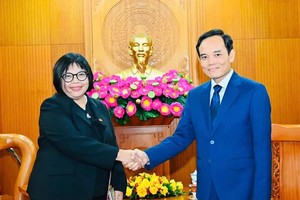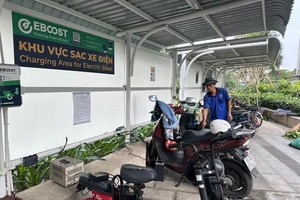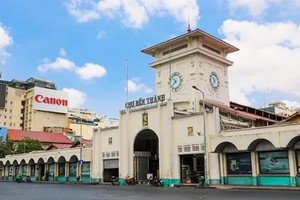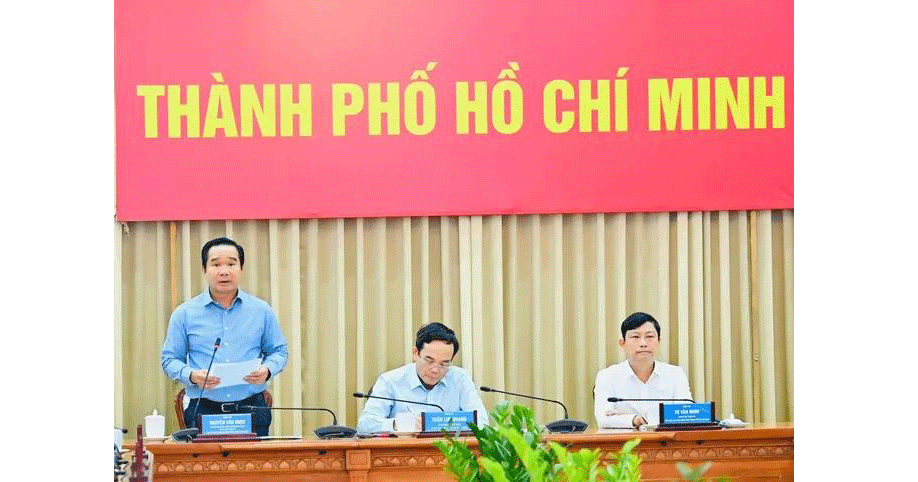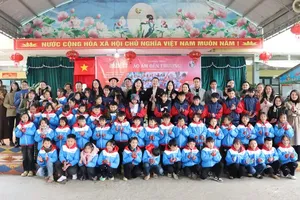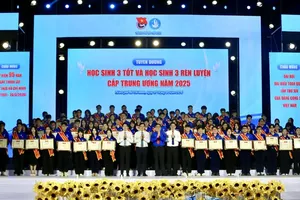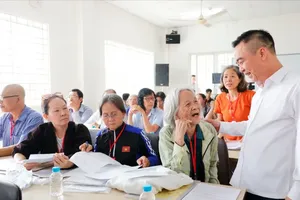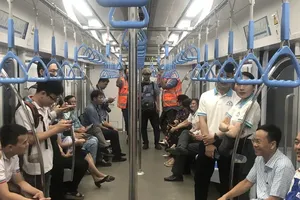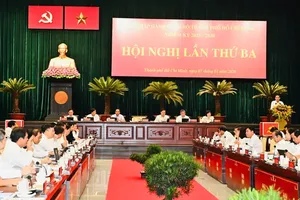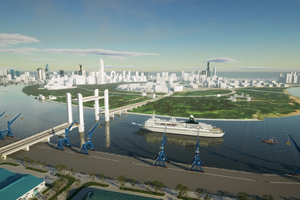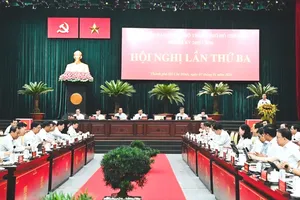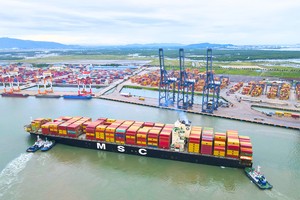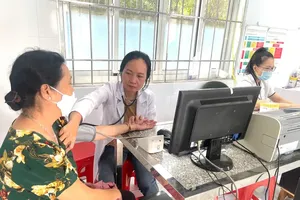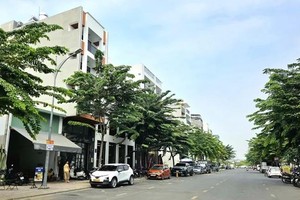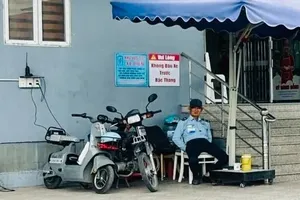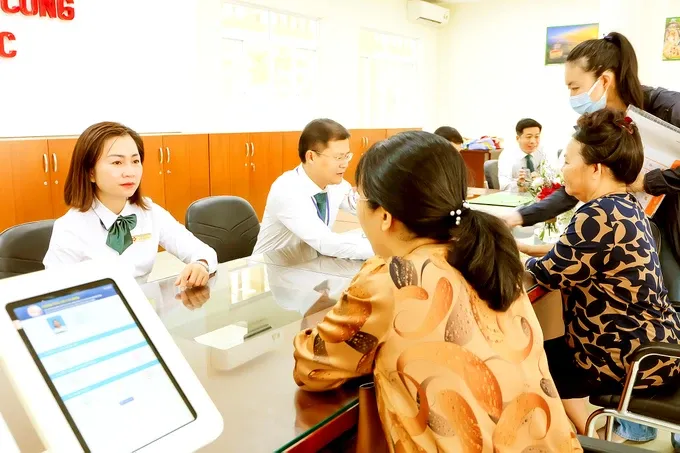
Having the need to reopen her diner in District 1, Dang Dieu Han from Go Vap District decided to perform this administrative procedure online via the ‘one-stop administrative service’ of the People’s Committee of District 1. After supplementing missing documents and filling out necessary information, she waited for 17 days and received her processed paper at door conveniently and satisfactorily.
Office Chief of the District 1 People’s Committee Le Tien Si informed that the proportion of citizens registering for administrative procedures online in the district has always been around 92 percent. At present, the district offers online service for popular administrative procedures and delivers paper at door thanks to its cooperation with the post. It also uses an ‘eKYC’ (Electronic Know Your Customer) measure to aid the submission of paperless documents in order to greatly reduce processing time.
Meanwhile, the face-recognition technology is exploited as a time-effective method for people to track the processing progress of their papers and for officials to access necessary personal information of document applicants.
Similar to District 1, other localities in HCMC are enthusiastically processing administrative documents on cyberspace to provide more convenience and save both time and money for local residents.
For instance, in Cu Chi District, people can apply for the procedure to receive a marital status certificate online via the e-Portal for administrative procedures of HCMC and obtain it later via the post, reducing the processing time from 3 to 1 day. The People’s Committee of District 12 has digitized all administrative procedures being carried out at its ‘one-stop administrative service’ reception area, along with 306 procedures taken from the e-Portal for administrative procedures of HCMC.
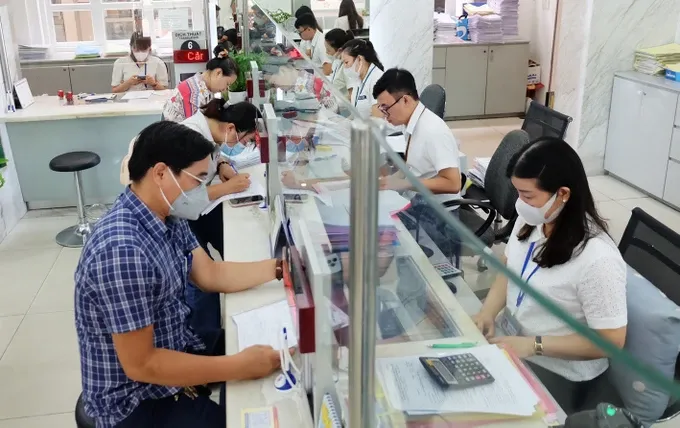
Meanwhile, according to Chairman Nguyen Van Duc of the District 12 People’s Committee, his district is reviewing and simplifying the administrative procedures under its charge. It is proposing that the city eliminate those without generating new documents for three consecutive years. Besides attributing more responsibilities to state office leaders in the administrative reform and procedure handling, the district is encouraging local inhabitants and businesses to perform these procedures online with cashless payment.
Likewise, Cu Chi District is focusing on the procedures directly related to citizens and businesses. In 2023, it was able to reduce the processing time for 23 district-level and 117 ward-level administrative procedures, especially the most common ones. The district promotes the use of digital signatures, e-authentication, e-documents, and digital payment in state agencies and state-owned units.
The launch of the Public Administrative Center in Thu Duc City has offered much convenience for local residents and businesses to carry out administrative procedures. Thanks to the integration ability, as many as 362 procedures (221 district-level and 141 ward-level) can be done after citizens submit their documents at this center.
Thu Duc City is now trying to simplify administrative procedures, to encourage online processing of these procedures, be they partially or totally. It also proposes to adjust or eliminate 8 unnecessary procedures in the fields of education and training, law education, local culture dissemination.
According to Chairman of the Thu Duc City People’s Committee Hoang Tung, along with the determination and efforts of all localities in the administrative reform process, it is wiser to automatically link HCMC’s information system for administrative procedure handling with the counterpart in Thu Duc City. With that, there will be a shared receipt number for procedure applicants via the Local Government Service Platform (LGSP), ensuring consistency in document receiving, sharing, and result distribution.
In reality, however, there is a situation when too many software pieces are used to receive and process administrative documents. To amend that confusing state, Thu Duc City suggests that the ‘one-stop’ system should have the function to categorize and professionally handle administrative documents in the aspects of business household establishment and operation, business tax registration.
Another alternative is to allow Thu Duc City’s software with the function to manage, issue permits, and check business households in the area to receive papers now directly from the Public Service e-Portal of HCMC and of the country without going through the ‘one-stop’ system.
Chairman Phan Van Mai of the HCMC People’s Committee stressed that administrative reform has no endpoint but must always be improved to answer the updated demands of both citizens and businesses during the development of the city. State unit leaders must implement administrative reform plans along with digital transformation missions to increase their competitiveness. All administrative procedures must gradually be brought online for integrating processing via the use of the city’s information systems, the access to the National Public Service Portal.
State agencies should effectively exploit the results of the digital transformation process as well as useful projects like ‘Developing population databases’, ‘Electronic identification and authentication for the national digital transformation in the 2022-2025 period, with a vision to 2030’. The process to satisfy administrative reform index, local-level and department-level competitiveness indexes is actually a contest for the ultimate aim of serving the public and enterprises.
